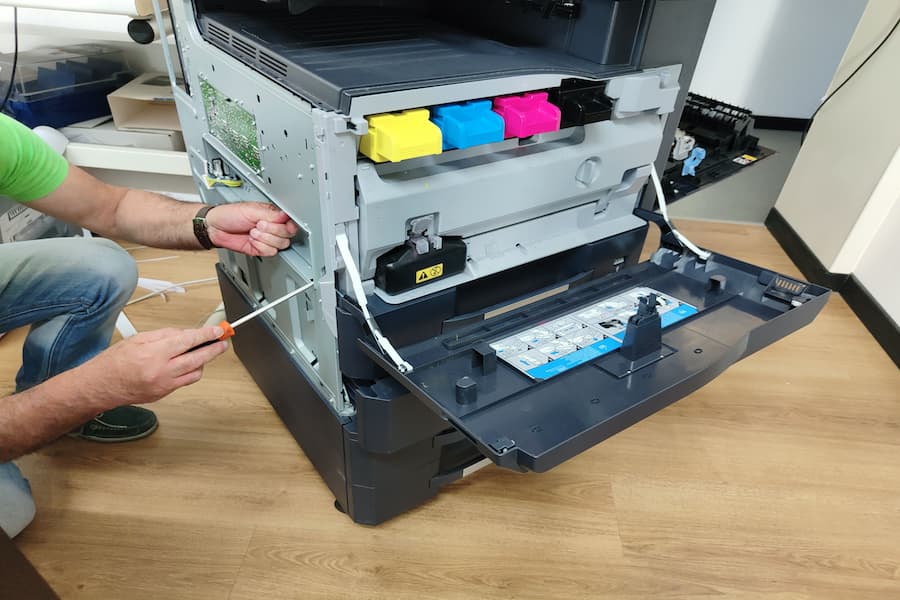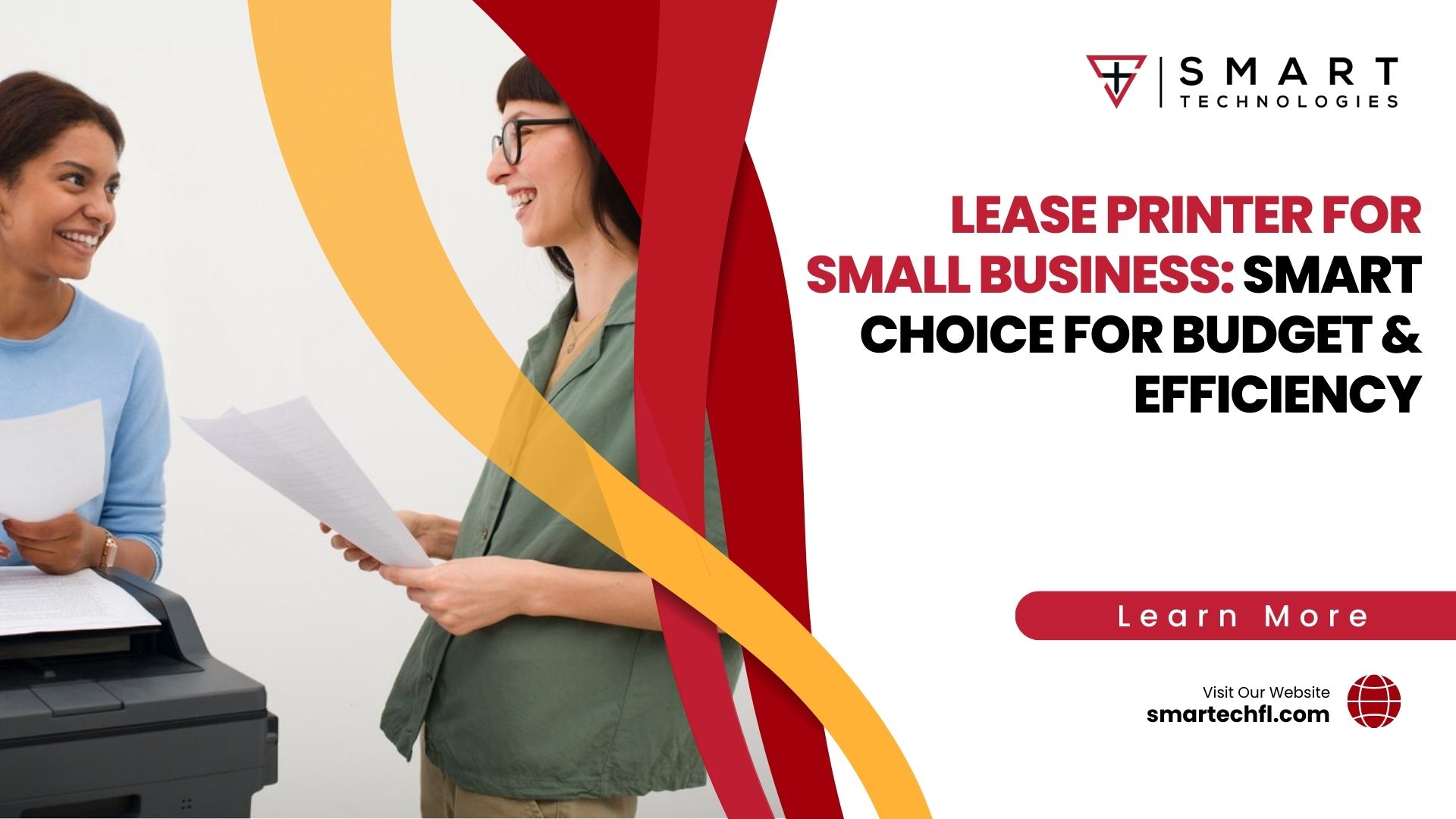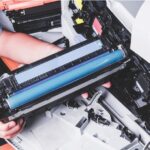Essential Tips for Understanding Your Copier Lease Agreement
When trying to run a business, having a reliable copier is essential. Unfortunately, understanding the copier lease agreement can be an intimidating task. With the help of a legal expert, however, it is possible to ensure that the agreement is fair and profitable for both parties.
From understanding the terms of the contract to setting up the payment schedule, a legal expert can help navigate the process of signing a copier lease agreement. It is important to make sure that all the terms are clearly understood by both parties, ensuring that the copier lease agreement is beneficial for both parties. They can also assist in making sure that all the necessary information is included in the agreement, so that any potential problems can be avoided.
What is Copier Lease Agreement?
A copier lease agreement is an agreement between the copier dealer, the leasing companies, or the lender and the lessee to lease a copier instead of purchasing it. Knowing about the different types of leases, the length of the lease term, the costs and payment terms, and the end of the lease options available will help you make the best decision.

A basic copier lease agreement can include a lease document, a maintenance agreement, and a service contract. Depending on the type of lease, the payment terms will be different. You may be required to pay a monthly payment, an upfront payment, or a buyout.
What Is Included in the Agreement
Having discussed the length of the lease, the costs and payment terms of a copier lease agreement, let’s now take a closer look at what is included in a typical agreement. A copier lease agreement typically includes details about the new copier being leased, the lease payment, the length of the current lease, the fair market value (FMV) of the copier, and the buyout option. It also usually covers the terms and conditions for the use of the copy machine as well as any cancellation rights of the lessee. The agreement will often include details about the bill of sale, the obligations of both parties, and the length of the lease (typically 24, 36, 48, or 60 months).
Length of the Lease
Generally, copier leases range from one to five years, but some companies offer longer terms or even a buyout option. If you want to purchase a copier outright, you may be able to negotiate a longer lease or a buyout option with the copier leasing company. To know about copier leasing contracts, you need to make sure you understand how a copier lease works.
Leasing an office copier is a great choice for companies with limited funds, since it allows them to acquire the latest technology without having to pay thousands of dollars upfront.
Costs and Payment Terms
With the costs and payment terms of a copier lease contract, an understanding of the agreement is key. A copier lease might require the lessee, or the party leasing the machine, to pay a separate maintenance contract for the device or to buy toner until the end of the lease. Monthly payments are calculated by multiplying the purchase price by the agreed-upon lease rate, usually expressed in percentages, plus interest.
Payments can be spread out over the length of the lease, usually anywhere from 12 to 60 months. If the lessee wants to buy out the copier at the end of the lease, they can usually do so for a predetermined price, though the price is often determined by the fair market value (FMV) of the machine.
Terminology of Copier Leasing
Terminology of Copier Leasing covers the various aspects of leasing office equipment, including Master Lease Agreement, Addendums, and End-of-term Options. The Master Lease Agreement outlines the conditions of the contract between the Lessor and Lessee. It includes a description of the copier, the length of the lease term, rental fee, and other important contractual items.

Addendums are documents that are added to the Master Lease Agreement and modify or add to the contents of the agreement. They may cover insurance requirements, late fees, shipping, and other matters.
Master Lease Agreement
The Master Lease Agreement is the legal document that governs the terms and conditions of the copier lease contract. It is a binding and legally enforceable document signed by both parties involved in the lease. This document outlines the length of the lease term, the payment amounts, the rights and responsibilities of both parties, and any additional terms and conditions. It also includes provisions for end-of-term options such as the ability to buy the copier or return the machine.
The Master Lease Agreement also specifies any addendums, which are documents that may be added to the lease at any time to supplement the agreement. Addendums can include additional equipment, insurance policies, surcharges, and renewal terms. These documents must be agreed upon by both parties and are legally binding.
Addendums
To further customize the terms of a copier lease agreement, addendums are a great way to add in custom terms. These are separate documents that outline additional agreements between the parties in the lease agreement. Common types of addendums are those that outline payment details, terms of the lease, and conditions of the copier.
Additionally, addendums can provide an attractive option to lower monthly payments or be used to allow for the purchase of additional equipment. If notified 90 days before the end of your lease, you may be able to avoid the cost of buying out the machine at the end of your lease term. Feel free to reach out to a copier leasing company for help in constructing an addendum to your copier lease contracts.
End-of-Term Options
When it’s time to wrap up a copier lease agreement, there are three main end-of-term options that should be considered. For instance, if the lease term is coming to a close, you can opt to buy the copier, re-lease the copier with a separate agreement, or return the machine to the leasing company.
Buying the copier is a practical choice for companies who need high volume, multifunction devices and have the funds to purchase the copier outright. This option is best if you plan to use the same copier for many years, since the purchase price is usually lower than the sum of the payments you would make over a longer lease term.
Maintenance and Repair Terms
Maintenance and Repair Terms can bring up several questions. Who is responsible for maintenance and repair? What costs are associated with repair and maintenance? Is tech support available?

When it comes to who is responsible for maintenance and repair, it depends on the lease agreement. The lease early buyout will determine who is responsible for repair and maintenance. For instance, if the lessee has the buyout option, then they are responsible for the repair and maintenance costs. In contrast, if the lessor has the buyout option, then they are responsible.
Who Is Responsible for Maintenance and Repair
With all the details sorted out, it’s time to move on to the essential question of who is responsible for maintenance and repair. After all, the whole point of a lease agreement is to make sure that all parties know their responsibilities and that there is no ambiguity when it comes to upkeep. This agreement is no exception – it outlines who will be responsible for repairs and maintenance during the term of the lease.
Generally speaking, the leasing company that you are signing the agreement with will be responsible for maintaining and repairing the equipment during the agreed upon term. They may have certain service plans to cover repairs, and you should carefully review what those plans entail before signing the agreement. In addition, you should be aware of any limitations on the lease agreement in terms of who is responsible for repairs and maintenance.
Costs Associated with Repair and Maintenance
The costs associated with repair and maintenance can vary depending on the type of copier lease agreement. Leasing companies typically charge for the parts and labor required for the repair and maintenance of the machine. The cost may also depend on the type of copier and the length of the lease. Additionally, some leasing companies may charge a monthly fee for maintenance and repair, while others may include it in the lease agreement.
For tech support, many leasing companies offer 24/7 customer service. This may include on-site visits or remote assistance, depending on the type of copier and the leasing company. Additionally, many leasing companies offer extended warranties on the copier to cover the cost of repair and maintenance in case of a malfunction.
Availability of Tech Support
The availability of tech support is an important factor to consider when signing a copier lease agreement. The lease should include a clause that states the agreed-upon terms and conditions of the tech support. This typically includes the duration of the support, the type of support provided, and the cost associated with any technical support.
Additionally, the lease should also specify the exact scope of the technical support, such as a guarantee of repairs, replacement of defective parts, and other related services. In some cases, the lease agreement may also include a service-level agreement that outlines the expectations and responsibilities of both the lessee and the leasing company.
Insurance Requirements
Insurance Requirements for equipment are essential to properly protect your business. Insurance policies can provide coverage against theft, damage, or other losses caused by unexpected events. The party responsible for insuring the equipment will vary depending on the type of lease agreement.
Generally, the lessee is responsible for obtaining the insurance policy and providing proof of coverage to the lessor. Failing to have the proper insurance for the equipment could have serious consequences. It could result in a breach of the lease agreement, financial penalties, or even repossession of the equipment. It is important to understand the insurance requirements outlined in the lease agreement to be sure you are properly covered.
Insurance Requirements for the Equipment
Having a clear understanding of the insurance requirements for the equipment is essential for any business owner and leasing company. Depending on the type of lease, the lessee may be responsible for obtaining insurance coverage for the equipment.
The insurance policy should cover damages, theft, fire, and other losses. It is important to note that certain types of equipment may require special coverage, and it is the responsibility of the lessee to obtain this additional coverage.
The leasing company may also require the lessee to obtain and maintain an umbrella insurance policy. The umbrella policy should provide coverage for any liability resulting from the use of the equipment. Failure to comply with the insurance requirements could result in the termination of the lease agreement.
Who Is Responsible for Insuring the Equipment
After having discussed the maintenance and repair of office equipment, it’s now time to turn to the topic of insurance requirements. Who is responsible for making sure the equipment is adequately insured? After all, having the right insurance coverage is key in protecting both the equipment and the business owner if something should go wrong.
In general, it is the responsibility of the business owner to purchase and maintain an insurance policy that meets the requirements of the lease agreement. The insurance should provide coverage for the full purchase price of the equipment, as well as any additional equipment that may be included in the copier lease agreement. Depending on the type of lease, the insurance might also need to cover any associated costs, such as shipping fees, so it is important to read the lease agreement carefully.
Terminating the Lease Agreement
Terminating the Lease Agreement can be a daunting task, and is often accompanied by several considerations. Early termination fees, returning the equipment, and obtaining a new lease agreement are all important considerations. Early termination fees are a common component of lease agreements, and may be assessed if the lessee terminates the agreement before the expiration date.
Careful consideration of such fees should be taken to ensure that any costs associated with a lease are known before the agreement is signed. The equipment must also be returned in satisfactory condition, in accordance with the terms of the lease agreement. The lessee is responsible for all shipping fees associated with returning the equipment.
Early Termination Fees
With the termination of a copier lease agreement, the first aspect to consider is the early termination fees. If you choose to terminate the lease agreement before the term is up, you may be liable for a hefty fee. Typically, the amount of the early termination fee is based on the remaining balance of the lease agreement.
In the case of a buyout, the amount of the early termination fee may be the full buyout amount. If the lessee is unable to pay the early termination fee, the lease agreement will remain in effect until the end of the lease term. Thus, it is important to understand the consequences of early termination and the associated fees.
Returning the Equipment
When it comes to returning the equipment, the lessee should be mindful of any additional fees associated with the copier lease agreement. The lessee should also be prepared to ship the machine back to the leasing company, which may come with additional shipping fees.
It is important to make sure that the copier is in its original condition before returning it, as any additional damage may be subject to additional fees. Before sending the copier back to the leasing company, the lessee should make sure that they have taken out any staples or documents that were stored in the copier before returning it.
Additionally, it is the responsibility of the lessee to notify the leasing company 90 days before the end of their lease term.
Obtaining a New Lease Agreement
It is possible to obtain a new copier lease agreement when terminating the existing one. Before doing so, it is important to consider the buyout options offered by the current leasing company. If the buyout amount is too expensive, then it is better to look for a new leasing company.
The new agreement should be tailored to the needs of the business, and research should be done to find the best leasing company. It is also important to ensure that the new contract is not only cost-effective, but also provides the most up-to-date technology available. Furthermore, it is essential to understand the terms of the lease, such as the payment schedule, the length of the lease, and any additional fees associated with the lease.
Conclusion
Understanding a copier lease agreement is essential for businesses who want to get the most out of their copier. It is important to understand the terms and conditions of the agreement, as well as the maintenance and repair terms, the insurance requirements, and the termination of the lease agreement.
Adequate research and negotiation are essential to ensure that copier leasing is the most attractive option for the company. It is also important to know the different types of copier lease agreements and the payment options available. By familiarizing yourself with the lease agreement, you will be able to make informed decisions to ensure that your copier leasing is a successful and cost-effective endeavor.
You can contact us by phone, email, or by visiting our offices:
- Phone: (386) 261-8323
- Email: contact@smarttechfl.com
- Address: 771 Fentress Blvd. #10, Daytona Beach, FL 32114











